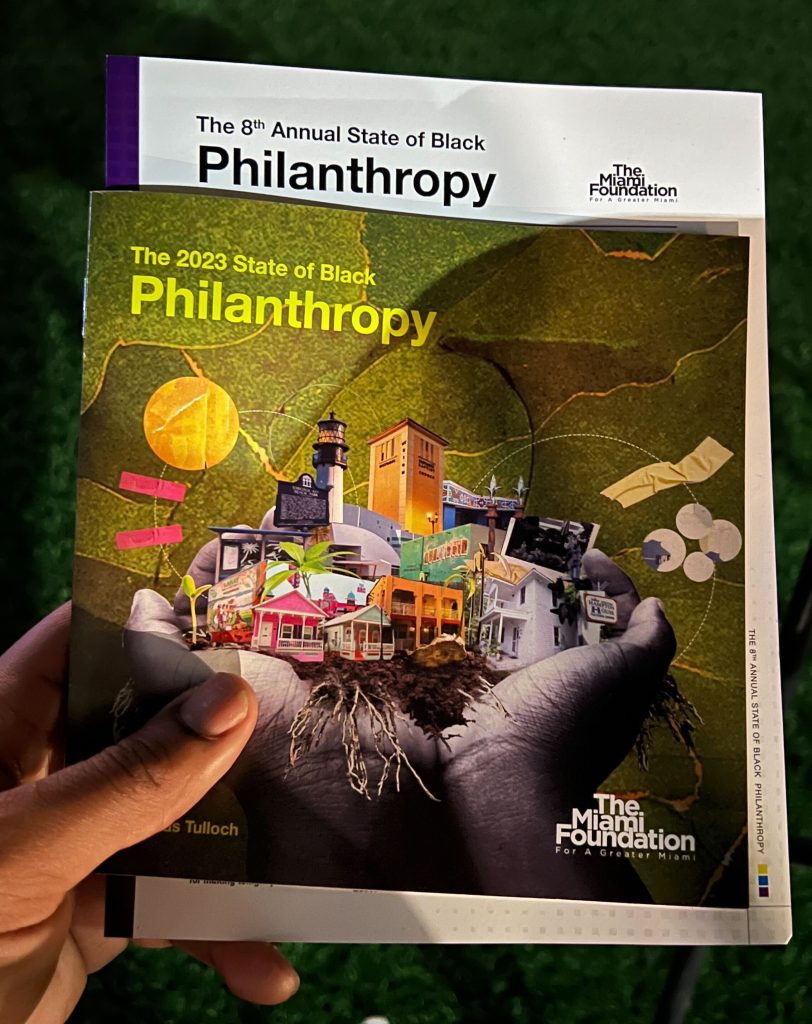
My Philanthropic Awakening
NCRP’s Human Resources Manager Boyer Bazelais Jr reflects on The Miami Foundation’s 8th Annual State of Black Philanthropy.

Last week, I attended the Miami Foundation’s 2023 State of Black Philanthropy. This event sought to celebrate the organizations and individuals working to support Black communities in Miami. Over 100 attendees enjoyed a night of amazing presentations, inspiring speeches, and performances highlighting African diasporic culture. It was also the first time that I attended an event like this in my own city.
The event was intentionally hosted in the historically Black neighborhood of Overtown. Just north of the current downtown area of Brickell, Overtown was once known as “Colored Town.” The neighborhood served as the heart of a thriving Black community during the Jim Crow era. Today, Overtown is just one of many places across the country fighting to restore its former prominence. This is especially true for its Black citizens, immigrants and other families of color that call it home.
That fight is not without assets. In fact, even though the wealth gap has been persistent, Black families since 2010 have nationally contributed the largest share of their median family wealth to charity. Even without the tools, support, and infrastructure that other communities enjoy, Black and Brown leadership and generosity are creating change. This fact remains true not just at the local levels like in Overtown but throughout the nation.
As many of the experiences shared that evening made clear, Overtown is just another example of a community of color whose people have the potential but lack the economic resources to create the kind of impact needed. These stories and the evening’s publication make one thing clear: Black and Brown residents of Miami don’t necessarily need someone from outside the city to ‘save’ them. These issues don’t continue to exist because of lack of good ideas, analysis or leadership. What they need are funded spaces, financial resources and other forms of institutional support.
Their work deserves to be uplifted, and more urgently funded, every day. Yet, nationwide, Black-led organizations have been given a startling 76% less unrestricted funding than White-led organizations. Locally, while nearly 21% of Black-led nonprofits participated Give Miami Day, only 11% of those organizations received donations. What could happen to Overtown if this funding was more? What could happen for these communities if the percentage of restricted funds dropped? What would organizations be able to do with just 25% more unrestricted funding?
The evening had me imagining the possibilities.
While stats like these make the fight against systemic racism seem like a huge mountain to climb, attending this event reassured me that we had barely seen the potential power of Black communities and other people of color in Florida. It was good to see so many like-minded individuals in one place who are all championing Black leadership and generosity. Numerous speakers touched on the fact that huge strides have been made. However, the fight for racial and social justice has truly just begun. It’s going to take continued dedication to make the dream of a more equitable distribution of wealth come true.
As the evening came to a close, and I waited outside for my Uber home, I was quickly reminded of the truth of this fact. There were panhandlers on each corner just outside of the venue. One of these panhandlers spoke Creole to me, which is my native language.
It was special moment for me. Being Haitian, I felt an immediate connection to this person. It made me want to ask, ‘What part of Haiti are you from? Where was his family?’
Even without his answers, I saw my family when I looked at him.
Attending this event and then hearing a panhandler speak to me in my native language directly afterward has stirred something inside of me. A lasting feeling that makes me want to do more.
Tout moun ou wè la a, se la pou ede.
“Everybody you see here, is here to help”
Boyer Bazelais Jr is the Human Resources Manager for the National Committee for Responsive Philanthropy.